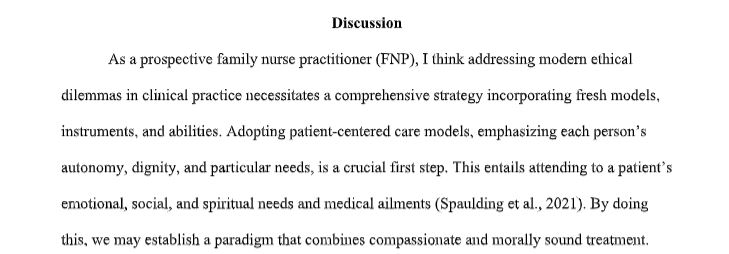Family Nurse Practitioner
Agreeingly, the United States’ health care system is in the midst of unprecedented complexity and transformation. The number of admissions to hospitals in the nation continues increasing significantly, indicating that there was an extraordinary number of very sick and frail people requiring highly skilled clinicians, such as APRN to manage and coordinate their complex care across multiple care settings. Medical advances give us the ability to send patients home more efficiently than ever before and simultaneously create ethical questions about the balance of benefits and burdens associated with these advances.
Every day on every shift, nurses at the bedside feel an intense array of ethical issues. At the same time, administrators, policy-makers, and regulators struggle to balance commitments to patients, families, staff members, and governing boards. Ethical responsibilities and the fiduciary, regulatory, and community service goals of health care institutions are not mutually exclusive; they must go hand in hand. If they do not, our health care system will continue to lose valued professionals to moral distress, risk breaking the public’s trust, and potentially undermine patient care. Based on this information that clearly demonstrates a critical juncture in health care, Asa future Family Nurse Practitioner, how can we look to new models, tools, and skills to confront contemporary ethical issues that impact clinical practice. What do you think is needed to create a new health care paradigm grounded in compassion and sustained by a culture of ethical practice.
Come prepared to class to present your points.\
Answer Preview for Family Nurse Practitioner

APA
300 Words
